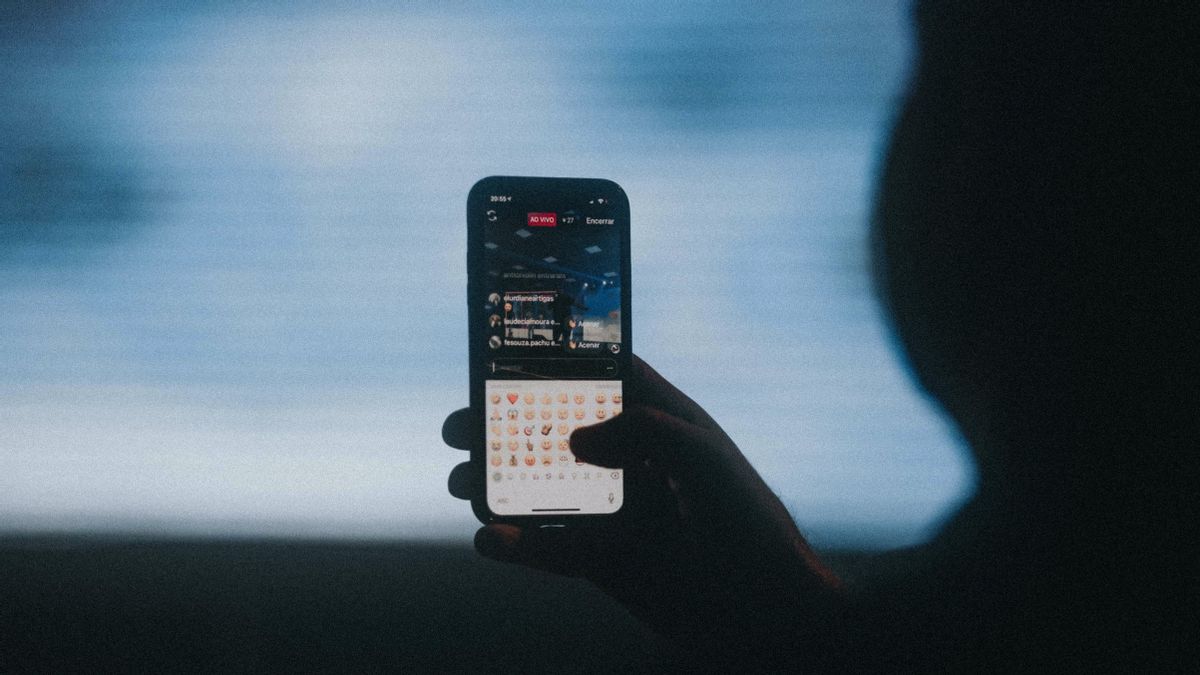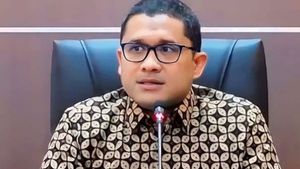JAKARTA - RCTI and iNews are contesting Law Number 32 of 2002 concerning Broadcasting (Broadcasting Law) to the Constitutional Court (MK). The two television stations asked for internet-based services or video over the top (OTT) to be included in the classification of the Broadcasting Law.
Quoted from the mkri.id site, the two private television stations requested that every internet-based broadcasting provider such as Youtube, Instagram, Facebook and Netflix must comply with the Broadcasting Law. Where they filed a judicial review of Article 1 paragraph 2 of the Broadcasting Law.
"Broadcasting is the activity of broadcasting broadcasts by means of broadcasting and / or means of transmission on land, at sea or in space using a radio frequency spectrum by air, cable and / or other media to be received simultaneously and simultaneously by the public with broadcast receiving equipment. , "reads Article 1 paragraph 2 of the Broadcasting Law, as quoted from the Constitutional Court website, Thursday, August 27.
According to RCTI and iNews, this article does not accommodate regulations on internet-based broadcasting. Where at least, there are six provisions in the Broadcasting Law which must be obeyed both the purpose, function, direction of broadcasting, licensing, broadcast behavior guidelines and supervision.
"Meanwhile broadcast operators who use the internet do not need to meet the various requirements referred to," read the reasons for the RCTI-iNews TV judicial review in their application file.
On that basis, the petitioner asked the Constitutional Court to reformulate Article 1 paragraph 2 of the Broadcasting Law. "The distinctions described above also very clearly violate the principle of 'non-discrimination'," continued the petitioner.
Kominfo ResponseThe Ministry of Communication and Informatics (Kominfo) represented the President in the judicial review of Law Number 32 of 2002 concerning Broadcasting, which stated that video over the top (OTT) services if included in the broadcast classification would cause problems.
"To classify OTT services as part of broadcasting will cause legal problems, considering broadcasting has been regulated very tightly and rigidly in one regulation," said Kominfo Director General of Post and Information Administration (PPI) Ahmad M Ramli, as quoted from Antara.
He said that OTT services are diverse and extensive, so the arrangement is complex and currently it is not just one regulation. The existing laws and regulations are in accordance with the types of OTT services provided, including the Telecommunications Law, the ITE Law, the Press Law, the Pornography Law, the Trade Law, the Copyright Law and the Book of Laws. Criminal Law Act.
Ramli emphasized that OTT services in Indonesia continue to develop, if it is regulated too tightly it will hamper the growth of the national creative and digital economy.
"Regulating OTT services strictly will also face legal challenges in their enforcement because the majority of OTT service providers currently come from jurisdictions outside Indonesia," said Ramli.
He said that until now there was no country that regulated OTT audio visual services via the internet to be included as part of broadcasting. OTT audio visual service arrangements are regulated in separate regulations with linear broadcasting.

Ramli is also worried about the expansion of the use of the Broadcasting Law if the Constitutional Court grants it. This is because people are no longer free to use broadcast features on social media platforms because they are limited to only licensed broadcasters.
"The expansion of the definition of broadcasting will classify activities such as Instagram TV, Instagram Live, Facebook Live, Youtube Live, and the distribution of other audio-visual content on social media platforms to become licensed broadcasters. That means we have to close them if they don't apply for a license. "said Ramli.
If activities on social media are also categorized as broadcasting, it is said that individuals, business entities, or legal entities will be forced to have a license to become a broadcasting institution. Furthermore, individuals or business entities that fail to fulfill the broadcasting licensing requirements become illegal broadcasters and must be disciplined by law enforcement officials because broadcasting without a license is a criminal offense.
Not to mention that content creators broadcast across national borders making it impossible to reach them under Indonesian law. Ramli admits that the rapid technological advances allow convergence between telecommunications and broadcast media.
However, he said the proposal for internet-based services to be included in the Broadcasting Law would change the structure of the broadcasting industry and change the whole. The solution needed, according to him, is the drafting of a new law by the DPR and the government which regulates broadcast services via the internet themselves.
The English, Chinese, Japanese, Arabic, and French versions are automatically generated by the AI. So there may still be inaccuracies in translating, please always see Indonesian as our main language. (system supported by DigitalSiber.id)









